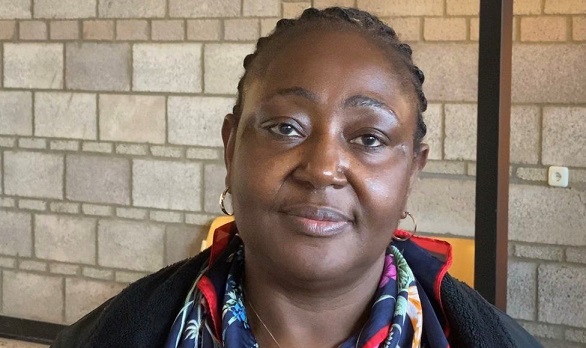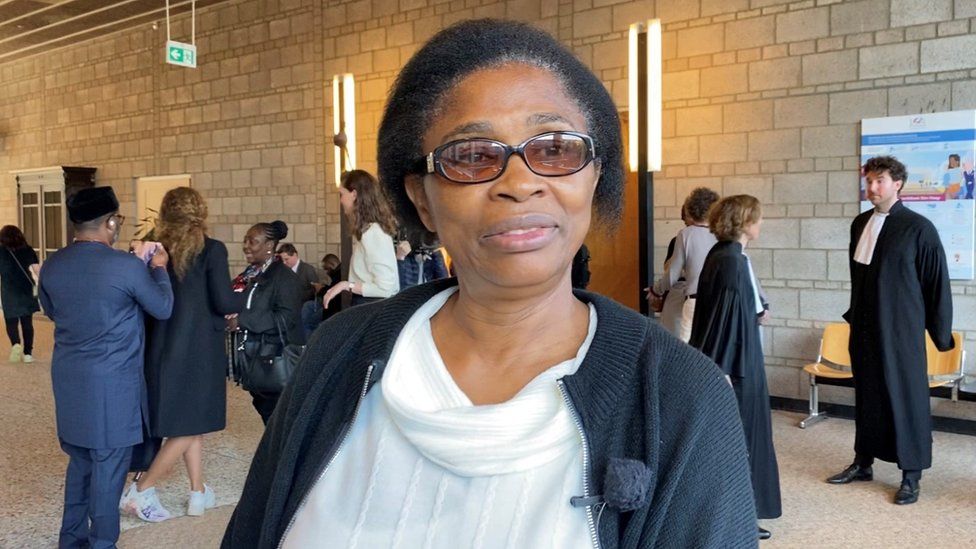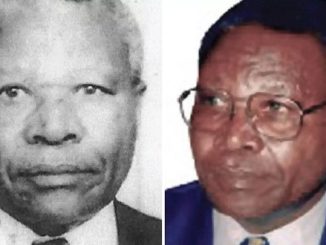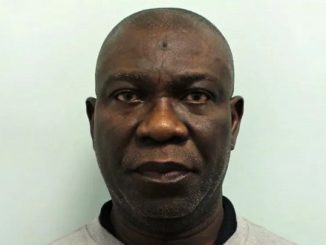
A group of Nigerian widows have lost their case after suing the oil giant Shell over the deaths of their husbands in the 1990s. The men were executed by the Nigerian government following peaceful protests against pollution caused by oil leaks in the Niger Delta. But their wives had accused the company of being complicit in their deaths, which Shell has always denied.
An imposing slate grey district courtroom in The Hague has become a legal battleground for people seeking justice against Shell.
Two of the Nigerian widows who have spent almost three decades fighting for theirs, sat patiently, composed in the courtroom.
The husbands of Esther Kiobel, Victoria Bera, Blessing Eawo and Charity Levula were hanged in 1995.
Five other men, including protest leader and writer Ken Saro-Wiwa, were also executed after what the human rights group Amnesty International described as a flawed mock trial.
Together the activists became known as the Ogoni Nine.
Their deaths followed a brutal crackdown by the Nigerian government on peaceful demonstrations by the Ogoni people, who were frustrated by the destruction of land vital to their livelihoods.
The imposition of the death penalty turned international opinion against Nigeria’s military rulers at the time.
The widows believe a Nigerian operating company, that was part of the Shell group, had bribed the witnesses whose statements led to the conviction and hanging of their husbands.
The district court in The Hague heard testimony from five witnesses, including some who said they had been paid by Shell representatives for rehearsed false testimony in the trial that led to the men’s execution.
But the Dutch judges decided that evidence was not sufficient or verifiable enough to establish the responsibility or involvement of Shell, or its Nigerian subsidiary SPDC – and therefore the energy firm could not be held liable.
“The witnesses’ testimony relies for a large part on assumptions and interpretations and cannot be enough to conclude that the money that they received at the time actually was from SPDC, and that actual employees of SPDC were present,” Judge Larissa Alwin said.
Shell has always denied any wrongdoing.
SPDC said in a statement on Wednesday: “The tragic events of 1995 shocked us deeply. The Shell Group, alongside other organisations and individuals, appealed for clemency to the military government in power in Nigeria at that time but to our deep regret those appeals went unheard.
“Today’s ruling does not diminish the tragic nature of the events of 1995. We have always denied the allegations made against Shell in this case, and today the court confirmed there is no basis for these claims. The claimants were given ample opportunity by the court to provide evidence in proceedings that took place over the last number of years.”
Plaintiffs have increasingly taken legal action against Shell in foreign courts, after exhausting legal options in Nigeria.
In a 2009 settlement, Shell paid $15.5 million to one group of activists’ families, including the Saro-Wiwa estate, in the United States. But again, the oil and gas conglomerate denied responsibility.
This is one of a series of environmental lawsuits brought against the global energy firm.
After a 13-year legal battle, in 2021 the same Dutch court ordered Shell to compensate Nigerian farmers for spills that contaminated swathes of farmland and fishing waters in the Niger Delta. The company agreed to pay more than a hundred million dollars.
And in another 2021 ruling, judges ordered Royal Dutch Shell to cut its worldwide carbon emissions by 45% by the end of 2030 compared with 2019 levels, in a precedent-setting case brought by Friends of the Earth. Shell has declared it plans to appeal.
Earlier, Esther Kiobel told me: “Even though the judgment went against me, it is still a victory, my voice has been heard, the truth is out, Shell need to go and clean their mess… “
“Heroes never last to eat what they fight for,” she added. “They start something… and there’s always continuation, the fight continues.”
Now she wants to have her husband’s name cleared.

Victoria Bera said she was happy to have “the opportunity to tell her story to the world” and that her husband would be proud.
Both women vowed to continue to fight the Ogoni people’s battle against oil pollution.
They will be studying the judgment before deciding whether to appeal.
Source: bbc.co.uk






Be the first to comment